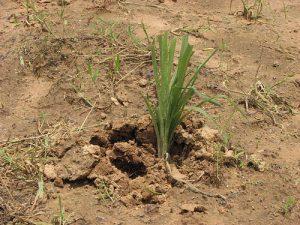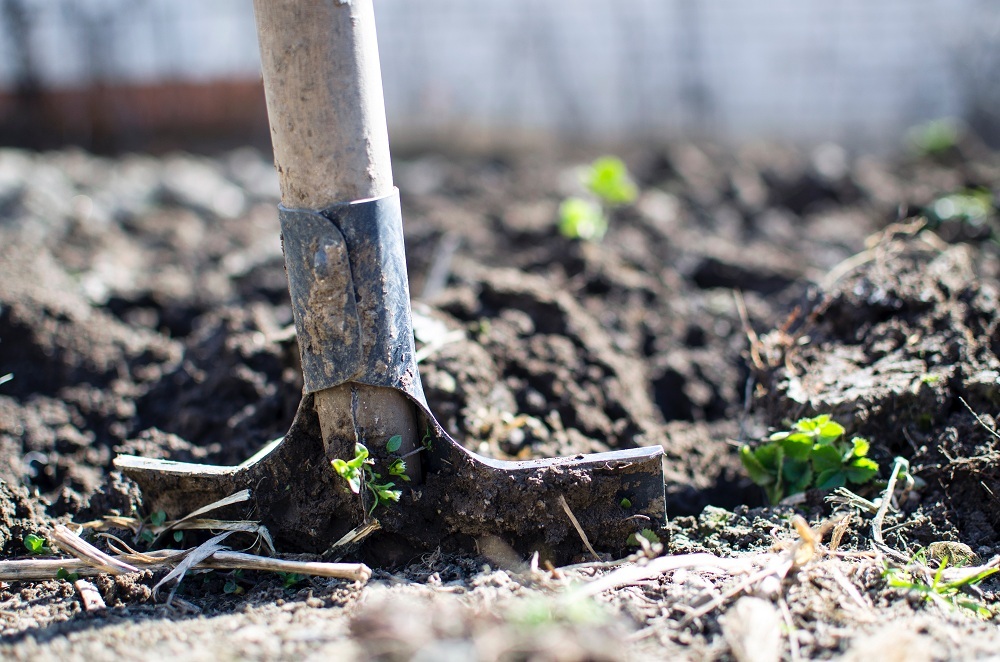Fertilizer is essential to plants growing healthy and strong. There are two methods by which you can fertilize your crops – organically and inorganically. For a thriving garden, it is important to understand the differences between both.
All plants require nutrients in order to thrive. There are many nutrients that contribute to the health of plants but the three most significant are Nitrogen, Phosphorus, and Potassium. Although both organic and inorganic fertilizers contain these nutrients, the way in which they are supplied differs quite a bit.
The Green Choice
 Organic or natural fertilizers are composed of plant or animal based materials that are products of natural processes, such as manure or composts. These often function as soil conditioners. Not only do they directly benefit the plants, but they provide nutrients for the soil as well.
Organic or natural fertilizers are composed of plant or animal based materials that are products of natural processes, such as manure or composts. These often function as soil conditioners. Not only do they directly benefit the plants, but they provide nutrients for the soil as well.
Organic fertilizer releases its nutrients at a much lower rate than inorganic fertilizer due to the fact that it is dependent on soil organisms to break down the organic material that is present within the fertilizer.
Although it takes longer for the materials to be transformed into plant ready nutrients, through the process, the soil is transformed and strengthened allowing it to hold more water and nutrients for future use.
Practice Patience
Despite the many advantages of organic fertilizer, there are a few disadvantages too. In order for soil organisms to break down the nutrients of organic fertilizers, warmth and moisture must be present. This can only be accomplished during particular seasons.
The break down process of the fertilizer will no doubt require some patience, as it will take longer for your plants to improve in comparison to the rapid improvement you might notice with an inorganic fertilizer. Lastly, because the fertilizer consists of animal and plan byproducts, exact nutrient compositions and ratios are somewhat unknown.
Yours to Choose
 Opposite of organic fertilizer are inorganic or chemical fertilizers. These fertilizers are made of artificially manufactured minerals and synthetic chemicals. Because they are created, you will know the ratios of chemical present within your fertilizer.
Opposite of organic fertilizer are inorganic or chemical fertilizers. These fertilizers are made of artificially manufactured minerals and synthetic chemicals. Because they are created, you will know the ratios of chemical present within your fertilizer.
Inorganic fertilizer contains plant ready nutrients, and the ratios are specific. Therefore, the health of the plant improves rapidly instead of at its natural pace. Inorganic fertilizers are also inexpensive in comparison to organic fertilizers. However, inorganic fertilizers are significantly more dangerous.
Consider the Chemicals
Contrary to organic fertilizers, inorganic fertilizers are not made of renewable sources. Their synthetic chemicals are often made from oil. They do not benefit the environment in a way that organic fertilizers do. They do not offer the sustainable, nutritional benefits to the soil and do not replace essential elements.
 The pure chemicals that help make up the fertilizer can sometimes be very hard on little critters such as earthworms. Earthworms and other microorganisms are important as they work through the soil, separating it, making nutrients more accessible for the plants. Thus, the fertilizer weakens the soil. As the chemicals cause the nutrients to filter away from the plant, you may need to apply the fertilizer multiple times.
The pure chemicals that help make up the fertilizer can sometimes be very hard on little critters such as earthworms. Earthworms and other microorganisms are important as they work through the soil, separating it, making nutrients more accessible for the plants. Thus, the fertilizer weakens the soil. As the chemicals cause the nutrients to filter away from the plant, you may need to apply the fertilizer multiple times.
Due to the high concentration of nutrients within the soil, it is easy to over fertilize, or burn the plants. Along with a high concentration of nutrients, the many chemicals can build up in your soil and eventually affect your plants.
When considering the pros and cons associated with organic and inorganic fertilizer, a simple conclusion can be made – one is simply more natural than the other. Organic fertilizer is made from the same nutrients as the soil to which it is being applied, while inorganic fertilizer is created by a production process. Therefore, organic fertilizer is a better choice for the environment as a whole.
